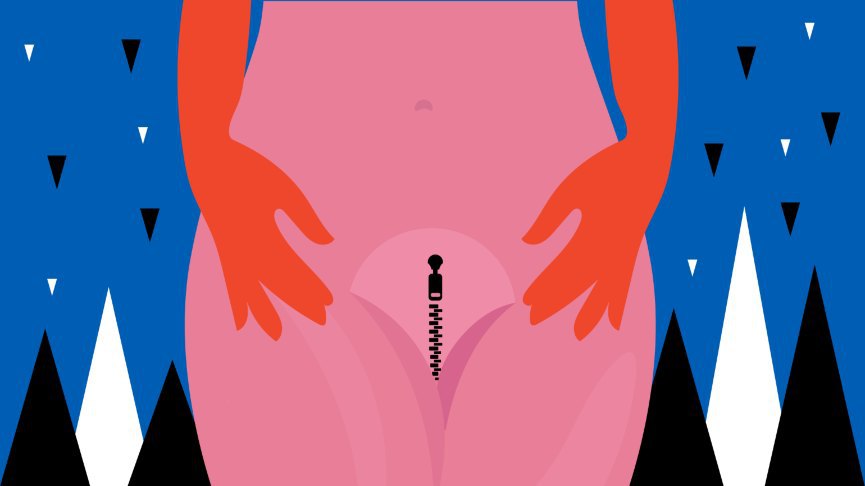Dilator Treatment for Vaginismus

Vaginal dilators come in many shapes, sizes, and even colors. They resemble a phallic-like shape, sort of like a tampon, and can come in plastic or silicone. They vary in length and thickness and are used to stretch your vaginal tissue. If you have pain during sex, pelvic floor dysfunction, menopause, or have had a gender-affirming surgery, dilators may be recommended.
What Is the Purpose of Dilators?
Dilators work to gradually make the vagina more flexible, strengthening the pelvic muscles to make penetration more comfortable.
One of the most popular treatment plans for vaginismus, a condition that causes involuntary muscle spasms and leads to painful sex, is the use of dilators.
Dilator therapy, when used correctly, can lead to relaxation, and improvements in tightening, and can help a patient towards a better, healthier, and safer sex life.
So, let’s dive into vaginismus and why dilators could be the treatment you’ve been waiting for.
What Is Vaginismus?
Before learning about dilators, let’s learn about the condition that they can heal.
Vaginismus is classified as dyspareunia, which is painful intercourse that is long-lasting and recurrent. It isn’t clear how many women struggle with vaginismus due to doctor misdiagnosis or misunderstanding and patients who don’t discuss their pain with their doctor.
A 2016 study said that 12% of women in the U.S. have sexual pain disorders, including vaginismus, whereas another piece of literature wrote that .5%-1% of women have vaginismus. Nevertheless, women are suffering, and many suffer in silence.
The main symptoms of vaginismus are tightened muscles, preventing anything and everything from entering the vagina. If something is forced in, it can cause stinging and burning, possibly leading to tearing and further pain.
Pain can occur when inserting a tampon, inserting a finger, a sex toy, or a penis. Some folks may feel pain if an object is near the vagina due to a fear of penetration. Vaginismus is uncontrollable, meaning that even if someone wants to have sex, the muscles may contract and tighten regardless of desire.
The cause of vaginismus is not always obvious either to the patient or doctor, meaning it can be a frustrating condition, leaving the patient at a loss of how to find a cure.
Some reasons may be anxiety surrounding sex, a traumatizing experience with sex, sexual assault, abuse, a medical examination that went wrong, giving birth, negative thoughts about sex, or a painful condition unrelated to sex.
How To Use a Dilator
Dilators are typically used at home without a prescription from a pharmacy or online website. However, you can also use one with your physical therapist or doctor.
Dilators come in a pack and range from 2 inches to 7 inches in length and 0.5-1.5 inches in thickness. No matter how confident you are, don’t start with the largest dilators when beginning your therapy. It’s best to start slow and small, working your way up to the largest dilator in the pouch.
Don’t rush or push through the sizes, spend time with each size so that you’re comfortable and don’t feel any pain. If you can only start with the tip of the smallest dilator for a week, that’s totally fine. It’s a slow process that can potentially be very rewarding.
Dilators come in silicone and plastic – many people have to figure out their own preferences. Plastic is typically firm and hard, which can help stretch the vagina faster however, silicone is gentler and softer. It’s more flexible as well, meaning that it won’t cause much pain.
Patients can also purchase magnetic dilators, which are made of plastic but have a magnet inside that helps increase the blood flow inside of the vagina.
If you’re overwhelmed with options – and since dilators aren’t cheap – visit your healthcare provider for recommendations or to receive an exam to see which option would work best for your body.
How To Insert a Dilator
First, remember that this process may be a bit alarming or uncomfortable at first. The entire process won’t take longer than 20 minutes but listen to your body. If you can only do 2-5 minutes, then that’s totally fine.
- Create a comfortable space. Prop up pillows, light some candles, put on relaxing music, or your favorite TV show.
- Make sure you have a water-based lube, not an oil-based one, and that you start with your smallest dilator.
- Lie down on your back with your knees bent.
- Starting with the smallest dilator, slowly insert it. If it causes pain, stop. Don’t force it. If you just need to hold the dilator near the opening, that’s enough. As long as your body gets comfortable with the sensation of something being inserted or about to be inserted.
- If you can insert the dilator halfway or all the way in, sit there for 5-10 minutes with it inserted. Move it around slowly and slightly.
- Don’t forget to breathe! Using long, deep breaths can calm anxiety.
- Gently remove the dilator and clean it with warm water and soap. Let it air dry until you use it again the next day.
With enough patience, you’ll eventually move up in size and be able to graduate using a penis, sex toy, or strap-on. It can take some folks several weeks, while for others it can take months or years.
Dilators don’t have any risks, but a common side effect is light, pink-colored bleeding. If you experience heavy bleeding that lasts longer than 24 hours, contact your doctor for further evaluation.
Alternative Vaginismus Treatments
In addition to dilator therapy, patients should consider various other forms of therapy or treatment. Typically, dilators can’t solve vaginismus on their own, and multiple exercises should be used to recover from the condition.
Other treatment plans include psychosexual therapy, where a therapist can help a patient understand their feelings surrounding their body, and sex or physical therapy for at-home exercises.
In addition to these exercises, dilators should also be used in conjunction with recovery.
Overall, sex shouldn’t hurt. If you experience pain during intercourse, it may be vaginismus or another condition. Talking to your healthcare provider can help weed out any serious conditions.
Vaginal dilators can help recover from tight vaginal muscles and will eventually lead to natural lubrication and a massive improvement to your budding and hopeful sex life.

S. Nicole Lane is an editor and journalist living on the South Side of Chicago.


